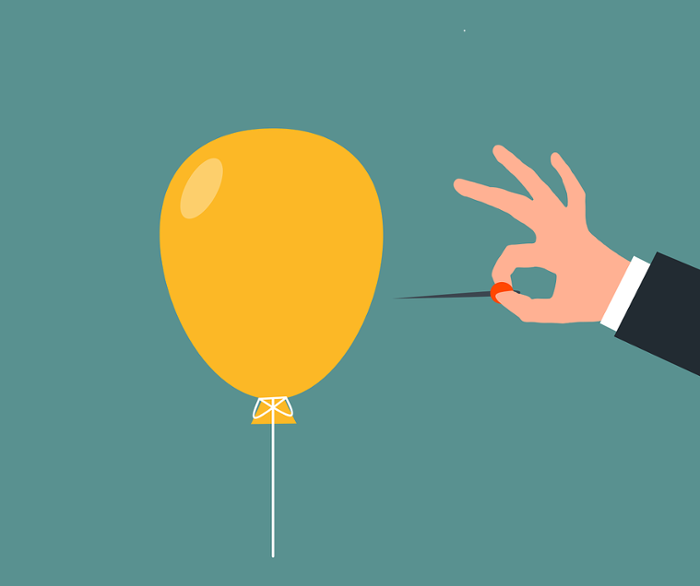The Federal Reserve raised interest rates in early May to offset inflation, which is currently at a 40-year high. But it’s a complicated issue. With the influx of Covid-19 financial assistance, Americans had more spending power and consumer spending increased. However, also due to Covid-19, the supply of products decreased with the slowdown of manufacturing and the supply chain, and many companies raised their prices. While there is currently enough oil and gas in the U.S., prices are also tied to international affairs, including the war in Ukraine.
Many Americans aren’t sure why interest rates were raised and how it can bring down inflationary prices and set the economy back on track. We sat down with two Georgia Tech Scheller College of Business faculty experts to find out what the rise in interest rates means for the current economy and how it will affect average citizens. Sudheer Chava, Alton M. Costley Chair, professor of Finance, and director of the Quantitative & Computational Finance program, and Alex Hsu, associate professor of Finance, provided their answers to some of the most salient questions around interest rates.
Q: How does raising interest rates help decrease inflation?
Hsu: There are many channels. Higher rates decrease demand for products. Higher rates also constrain a firm's ability to borrow and invest, which will negatively impact output and wages. In addition, higher rates also incentivize households to save more and consume less. All these outcomes put downward pressure on inflation as consumer demand decreases.
Q: How will raising interest rates slow down consumer spending? Isn’t more spending likely to improve the economy?
Chava: Even with nominal salary hikes, a worker’s real income is decreased if the increase in their costs is more than the increase in their income.
Hsu: Raising interest rates make mortgages more expensive, credit card debt more costly, and bonuses or salary hikes less likely as companies deal with higher financing cost. All these things will slow down consumer spending, especially discretionary consumer spending. High spending is good for the economy in normal times, but with high inflation, a consumer’s purchasing power is shrinking in real terms.
Q: Research shows there is a fine line between rising interest rates helping spur the economy or helping to cause a recession. Where do you see this going?
Chava: The question is probably not whether there will be a recession, but how deep the recession will be.
Hsu: The combination of low interest rates (monetary policy) over the last few years and large government Covid-19 stimulus (fiscal policy) has created the historically high inflation we see today. Given the low likelihood of large tax increases to reverse the fiscal policy effect, the Fed will have a hard time taming inflation without nudging the economy into a small recession.
Q: When interest rates are raised to help stem spending, won’t companies raise their prices?
Hsu: Prices must be supported by supply and demand. If demand drops, companies will not be able to raise prices unilaterally.
Q: What group of consumers does rising interest rates affect the most - lower, middle, or high-income consumers? And why?
Chava: Lower-and middle-income consumers are more affected because they consume most of their income compared to high-income consumers. Lower income consumers also rely on borrowed money the most, and tightening credit standards would affect them more.
Q: Will states who are providing tax cuts undermine the rising interest rates designed to curb spending? If so, why are states doing this?
Chava: It depends on the nature of tax cuts and how they are targeted. A cut on gasoline tax, for example, may not be that helpful in the long run. Tax cuts are not just related to economic arguments, but also ideological and political positions.
Q: If you could advise consumers on what to expect in the next six months, what would you say? Is there anything a consumer can do individually to help bolster the economy?
Chava: Interest rates are going to increase until the Fed can feel more confident that inflation is going down. Inflation is very likely to decrease from the current high level as demand and supply chains adjust, but it is unlikely to go down to 2% quickly. We will see a few quarters of 4%+ inflation before we return to more normal inflation.
Hsu: Consumers should think about saving more and consuming less.

